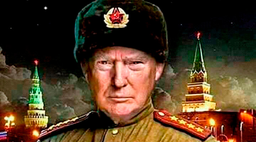Key Ideas:
-
Fake news as an emotional weapon: Medvedev emphasizes that fake news and blatant lies not only fail to undermine political figures but actually strengthen their positions among certain segments of the population. This is particularly true for Donald Trump, who, according to Medvedev, retains support even after obvious lies. The more implausible the information, the more emotional response it elicits.
-
Rational truth does not work: The text reveals an important phenomenon of contemporary society—emotion dominates over rationality. Even facts, thoroughly checked and proven lies (for instance, statistics from The Washington Post), do not affect Trump supporters’ beliefs. This is evident from people believing absurd claims, like migrants “eating cats and dogs.”
-
Reverse interpretation effect: One of the key points is that people not only live in information bubbles but are also capable of reinterpreting facts that oppose their views to their advantage. For example, accusations against Trump in court are perceived by his supporters as proof of a conspiracy against him, and obvious lies are seen as evidence that “the whole truth will never be known.”
-
Kremlin propaganda: Medvedev points out that similar tactics have long been mastered in the Kremlin. He mentions Zhirinovsky, who also used lies as a manipulation tool. The logic is that the more lies, the greater the audience’s dependence on them, and stopping the flow of new fakes could provoke aggression.
-
Lies as a drug: The author draws a parallel between lies and drugs. Lies require constant dose increases, and any attempt to present the truth will trigger withdrawal symptoms—similar to a psychological break from addiction. This reinforces the idea that a society immersed in lies becomes aggressive toward any alternative viewpoint.
Overall Conclusion:
Medvedev highlights the paradox of modern politics, where lies and manipulation, not truthfulness, become the primary tools of influence. The era of social media only amplifies this effect, as it creates an environment where people can isolate themselves in information bubbles and fuel their emotions while remaining indifferent to rational arguments. This raises serious concerns about the future of democratic processes and the development of political culture worldwide.

